The Territory is My Body: More on the Indigenous Leaders Workshop in Colombia, Interview with ZPI Executive Director Rami Efal
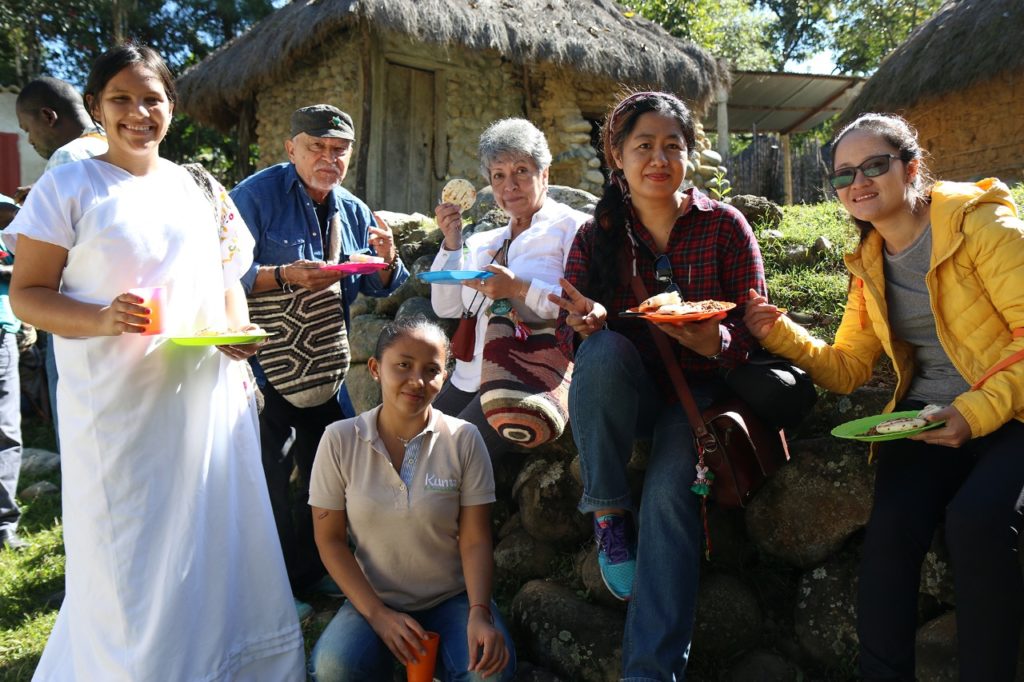
SIERRA NEVADA de SANTA MARTA, COLOMBIA. Interview with Rami Efal, executive director of ZPI on his experience in the First Workshop for Indigenous Leaders in December 2017, which saw leaders from indigenous communities of Africa, Asia and the Amazon come together to learn, train and bond.
An Endless River: Roshi Genro On Returning to Auschwitz-Birkenau
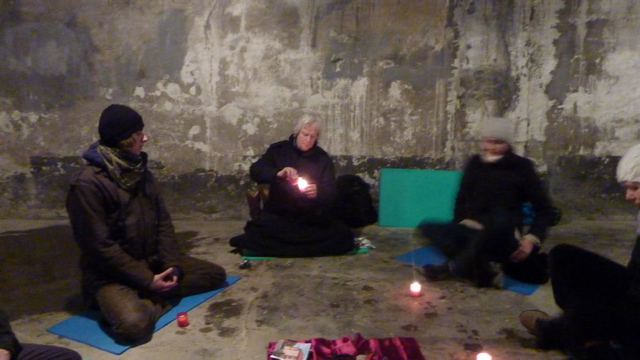
OSWEICIM, POLAND. With more than two decades of bearing witness practice at Auschwitz, Roshi Gauntt offers a brief, potent reflection on this Bearing Witness Retreat.
The Face I See Everywhere: Why Barbara Wegmüller Returns to Auschwitz
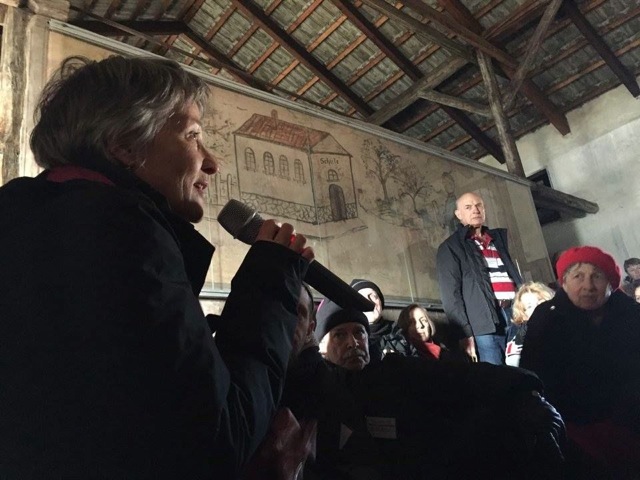
OSWIECIM, POLAND. “There is the face of a woman, looking at me, ever since I met her eyes for the first time. She is looking at me on one of the pictures in one of the memorial halls in Auschwitz I, the original camp. The photo shows her as she is waiting with a group of women and her children at the selection site. Her face shows disgust, fear, distress, and she seems to know what will happen to her and her children as she looks into the camera.”
Barbara Wegmüller, a Zen Peacemaker Roshi and Bearing Witness retreat Spiritholder (facilitator), responds to the question of why she’s been coming back to bear witness at Auschwitz for nearly 20 years.
Yet the Ground Holds Firm: Highlights from the 2017 Zen Peacemakers Bearing Witness Retreat in Bosnia and Herzegovina
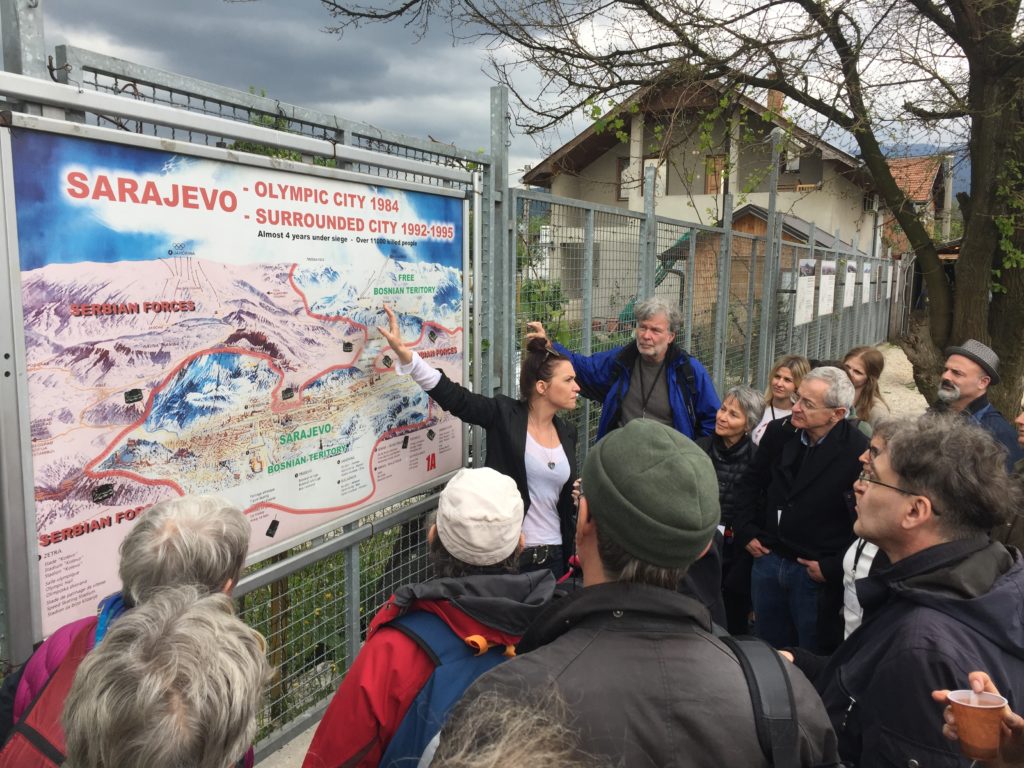
SARAJEVO, BOSNIA AND HERZEGOVINA. Bearing Witness Retreats reveal how, even though each place of tragedy reflects a unique circumstance, they all share in common universal human experiences – even the tendency to violence can be seen as a source and expression of commonality and connection. Several years ago, Zen Peacemakers began collaborating with Bosnian peace-builders at the Center for Peacebuilding, to plan a bearing witness retreat following the genocide there in 1992-1995. These planning efforts were passed to local European Zen Peacemakers leaders, who brought it all to fruition this past May. In this post Zen Peacemakers thanks the organizers and features the stories of four European Zen Peacemakers who attended the retreat.
Rags to Rakusus: Paco
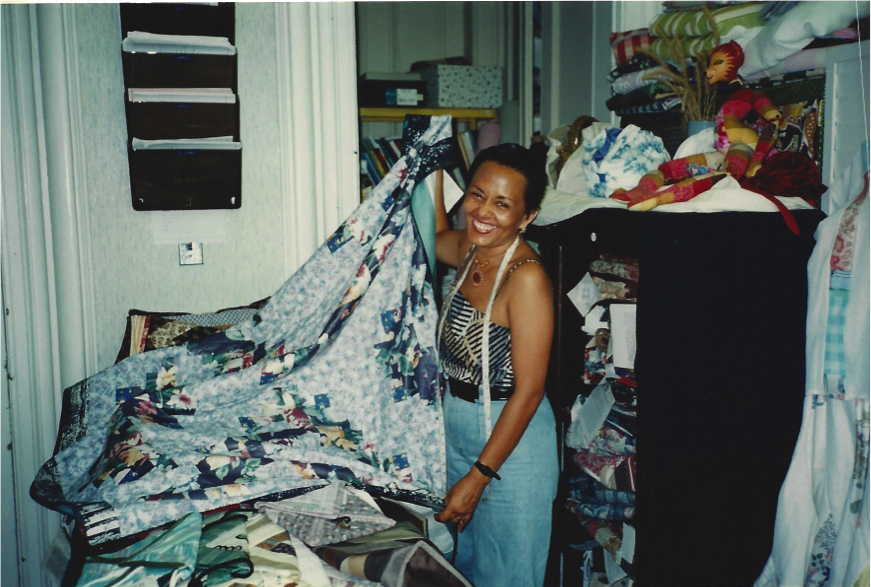
YONKERS, NEW YORK STATE, USA. Lay practitioners of Zen Buddhist lineages who take refuge in the Buddhist precepts and vows prepare and wear a rakusu – a cloth garment around their neck – representing the monastic robe, also known as kesa. In the days of the Buddha, it is said that certain materials called Pamsula were taboo for use by society. This included materials used for shrouds covering the dead, those gnawed by rats, or menstrual rags. These were collected to create the monks’ robes. The late co-founder of the Zen Peacemaker Order, Roshi Sandra Jishu Holmes, first conceived the Zen Peacemaker Rakusu that is made up of pieces of discarded cloth from origins meaningful to their wearer’s life and practice. This series of posts named ‘Rags to Rakusus,’ showcases the personal stories of Zen Peacemakers’ rakusus around the world.
Zen Peacemakers Joins Zen Center of Los Angeles’ 50th Anniversary Celebration
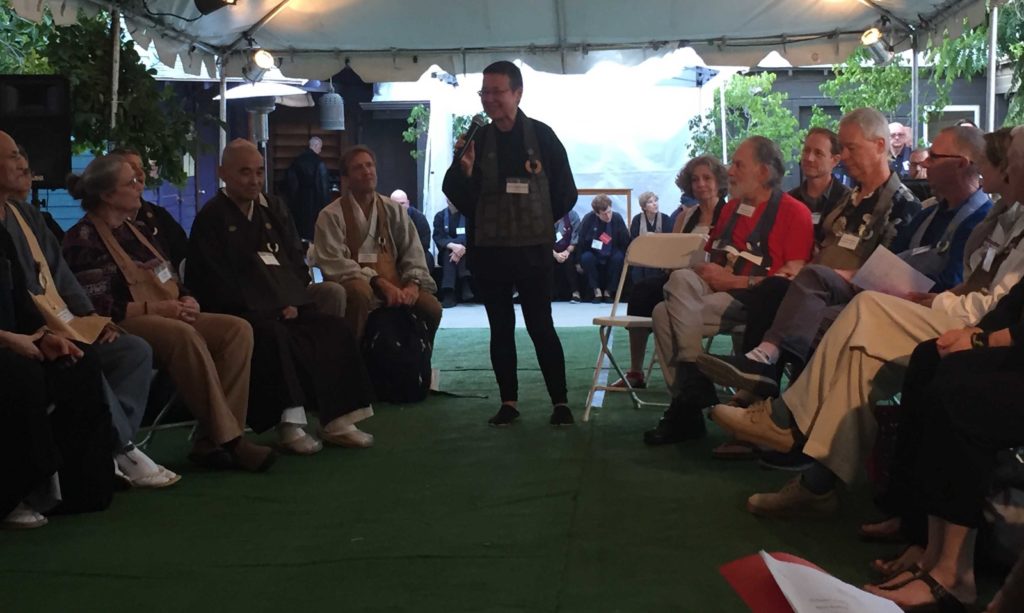
LOS ANGELES, CALIFORNIA, USA. Zen Peacemakers congratulates Zen Center of Los Angeles and abbot Roshi Wendy Lou Egyoku Nakao on its 50th Anniversary! ZCLA was founded by Japanese Zen Master Hakuyu Taizan Maezumi Roshi in 1967 and was the training grounds of his creative and influential successors, starting with Bernie Glassman, 2nd abbot of ZCLA and founder of Zen Peacemakers. Today, ZCLA is a bustling urban training center in the heart of Los Angeles. Its robust residential and lay sangha is deeply involved in the local community of immigrants, artists, homeless and refugees. Read here Roshi Eve Marko’s reflection on the occasion.
Knowing When to Quit: Roshi Genro Reflects on 1999 New York City Street Retreat
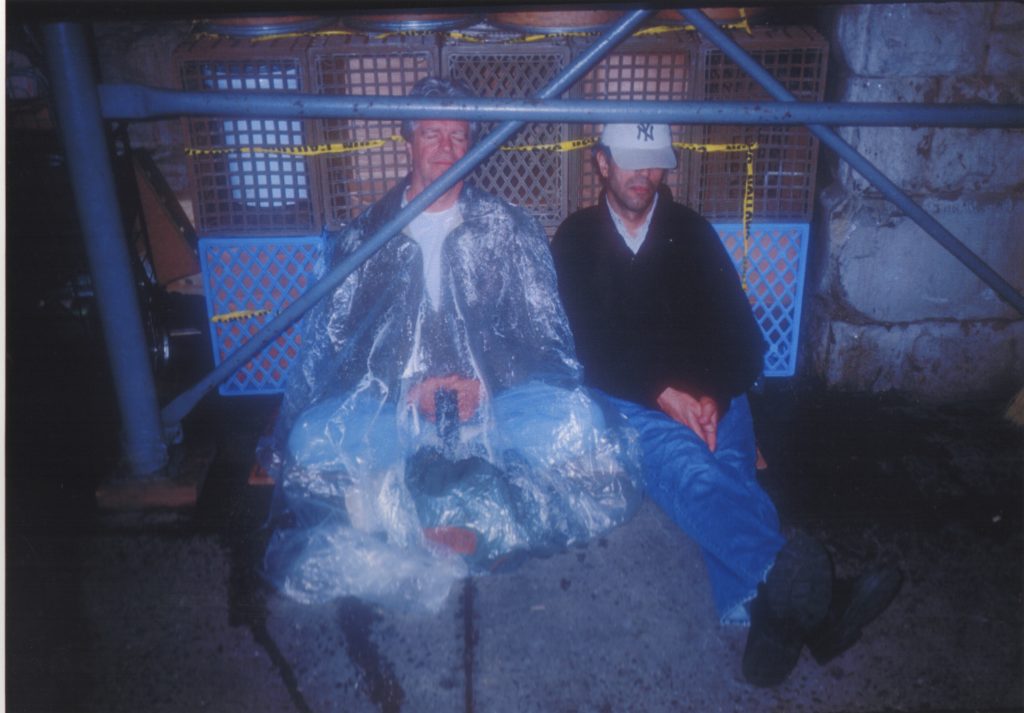
NEW YORK, NEW YORK, USA. “…Once you’ve experienced a certain amount of difficulty as a group, and the group’s gone through a lot, sometimes you don’t need four days on the street to get it.” Roshi Grover Genro Gaunt reflects on his experience during a street retreat in 1999.
We Are Sumud, or If You Imagine It, It Will Be
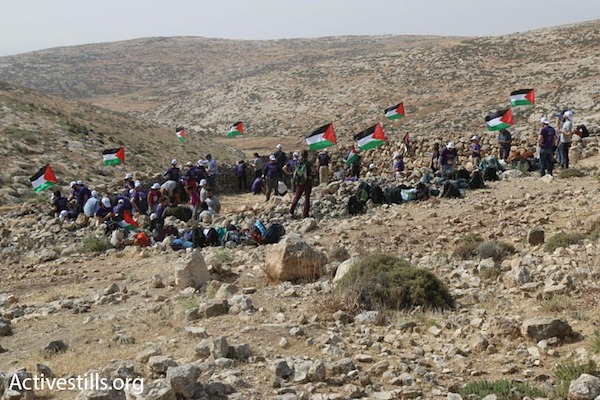
ISRAEL. “Sumud, like so many other acts of heartful resistance, begins as an act of the imagination. Someone dares imagine that force, occupation, discrimination, poverty, and violence can end.” Eve Marko reflects on her recent trip to Israel, and acts of imagination and revolution.
Flowers on the Edges of Graves: Roland, 14 Years as the Auschwitz Bearing Witness Retreat Doctor
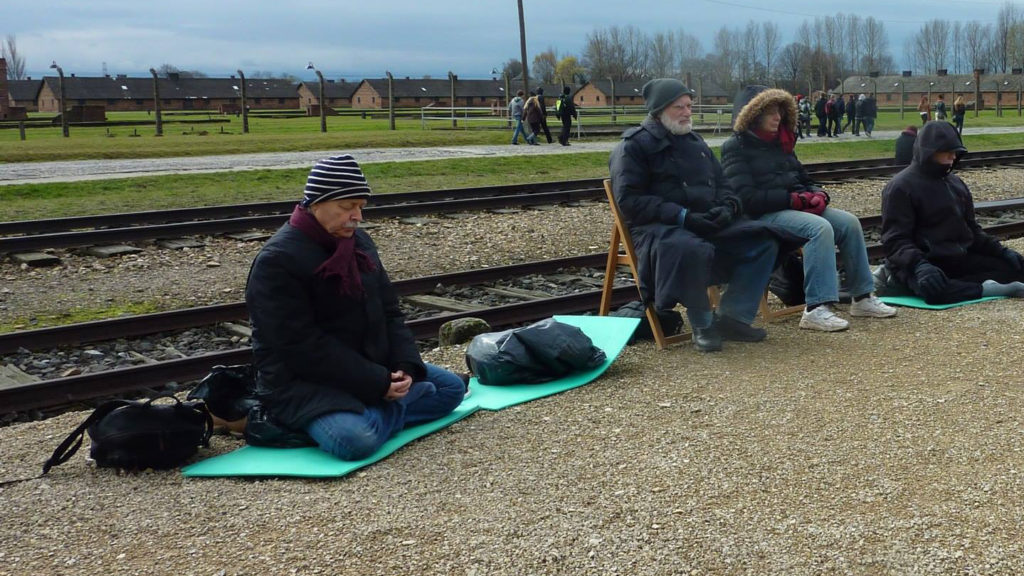
At the site of gruesome human medical experiments, Sensei Dr. Roland Yakushi Wegmüller has been serving and ministering the participants of the Zen Peacemakers Auschwitz-Birkenau Bearing Witness retreat for the past 14 years. In this personal essay, Roland reflects on his role as the retreat’s doctor, the healing and kindness in the old camp, and the rich experiences and connections he’s had with his patients there. Deutsch nach Englisch.
WHO ARE YOU REALLY?
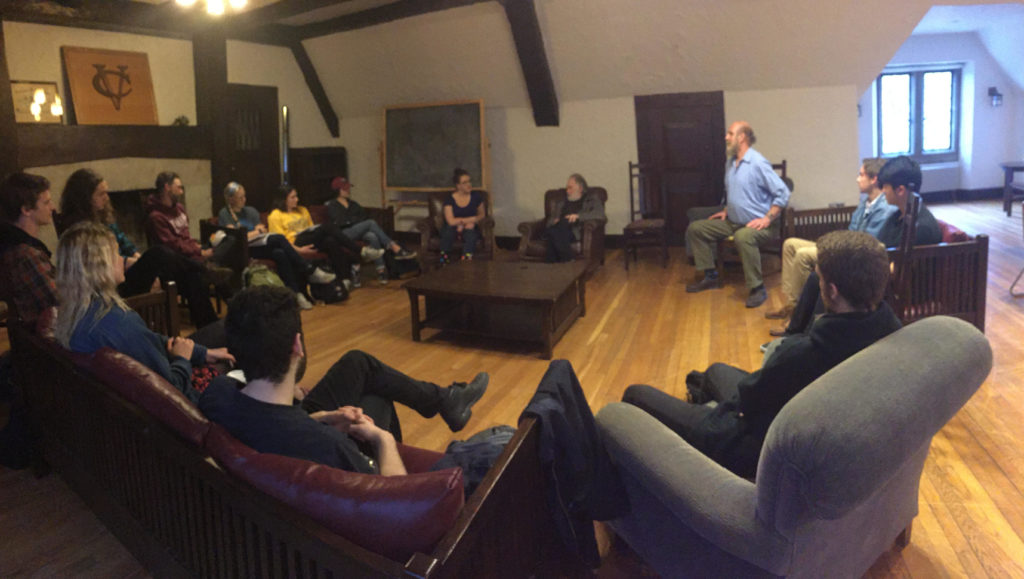
“And though we were talking lightly and easily, we were really looking at each other and asking, ‘So who are you after these days away? Who are you, really?’ And I realized that that’s really the question I ask every morning when Bernie gets up. So much has happened, so much has changed.” Eve reflects on her reunion with Bernie after his first public talk since the stroke, which took place this past Tuesday, April 25th, at Vassar College.

